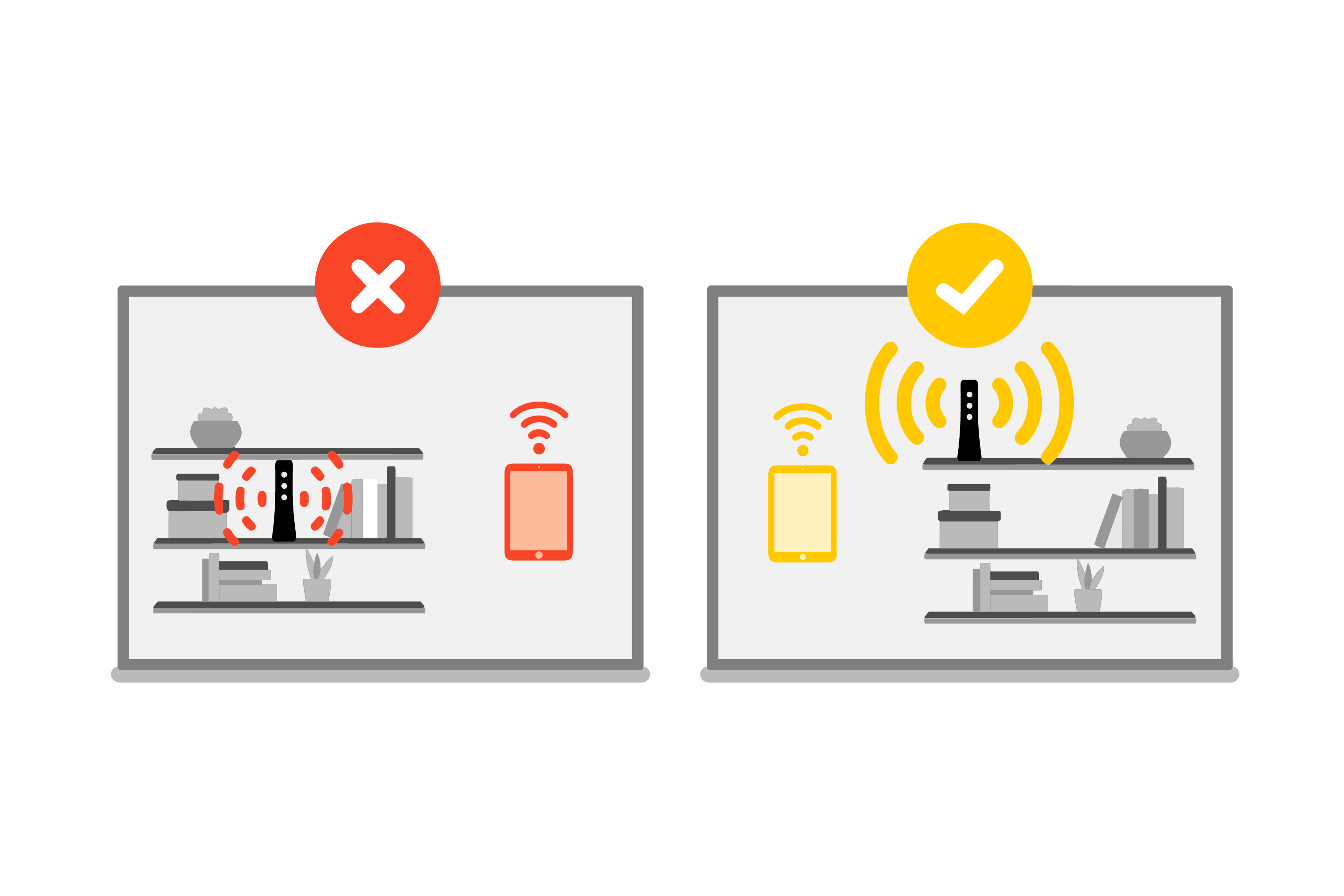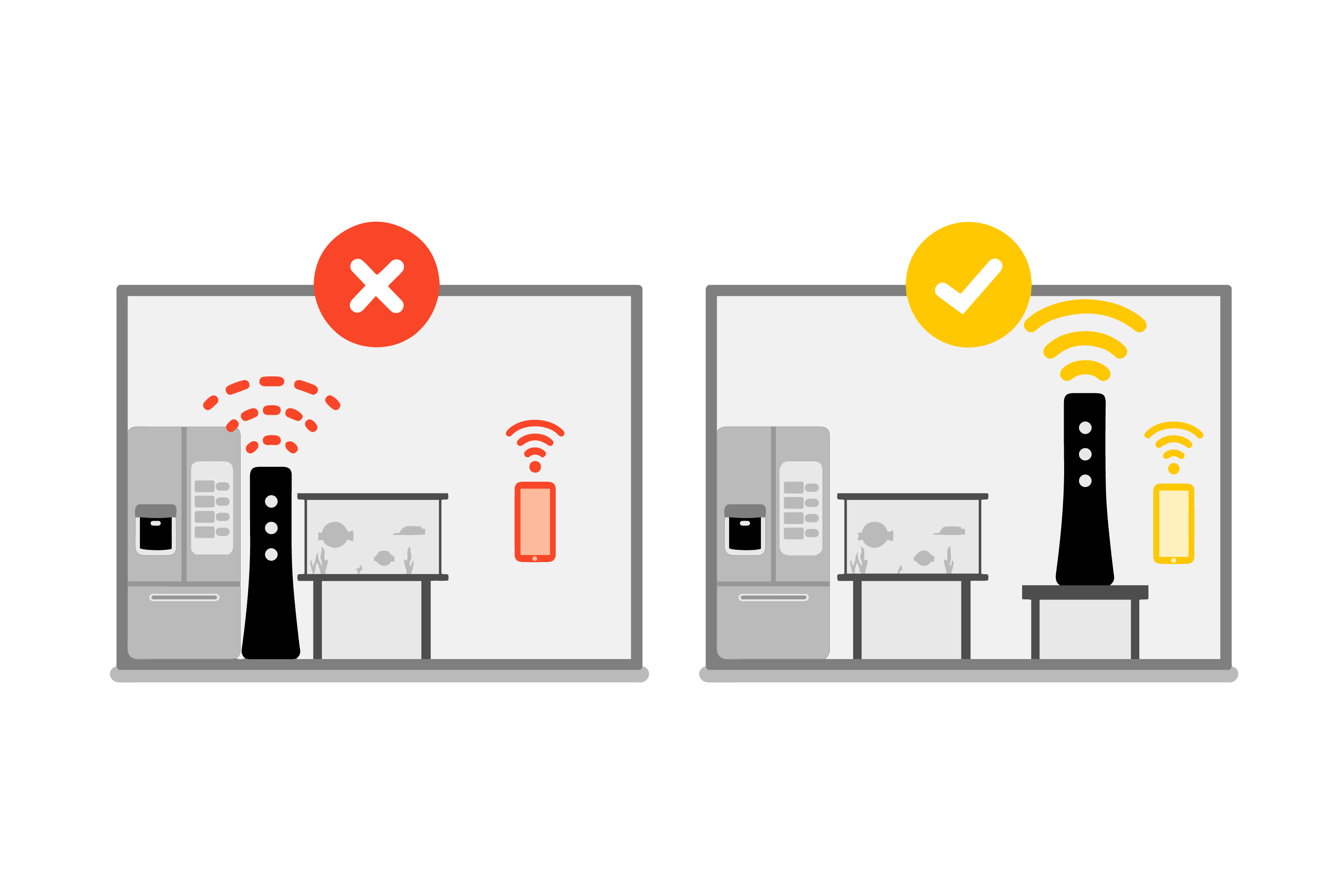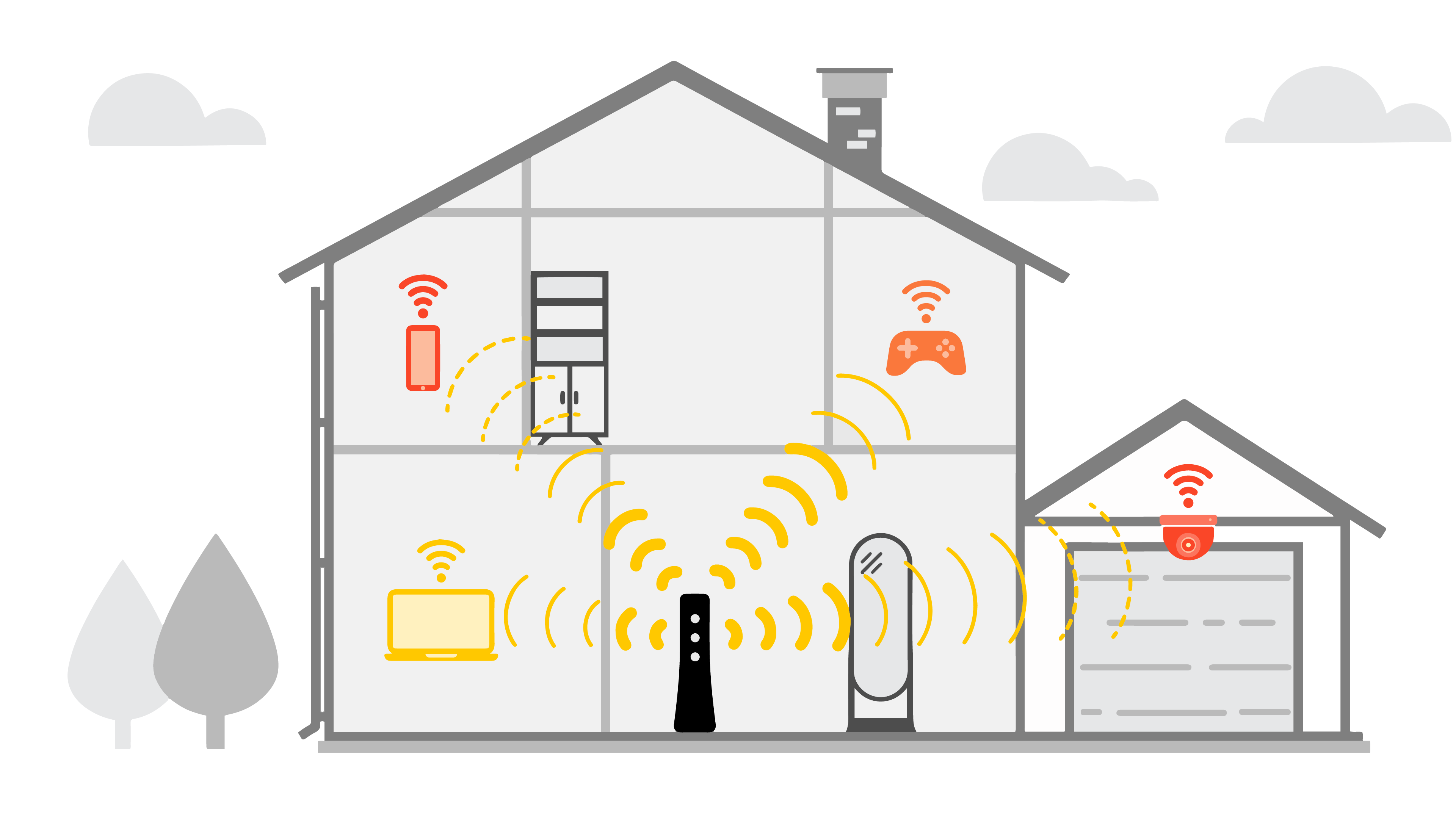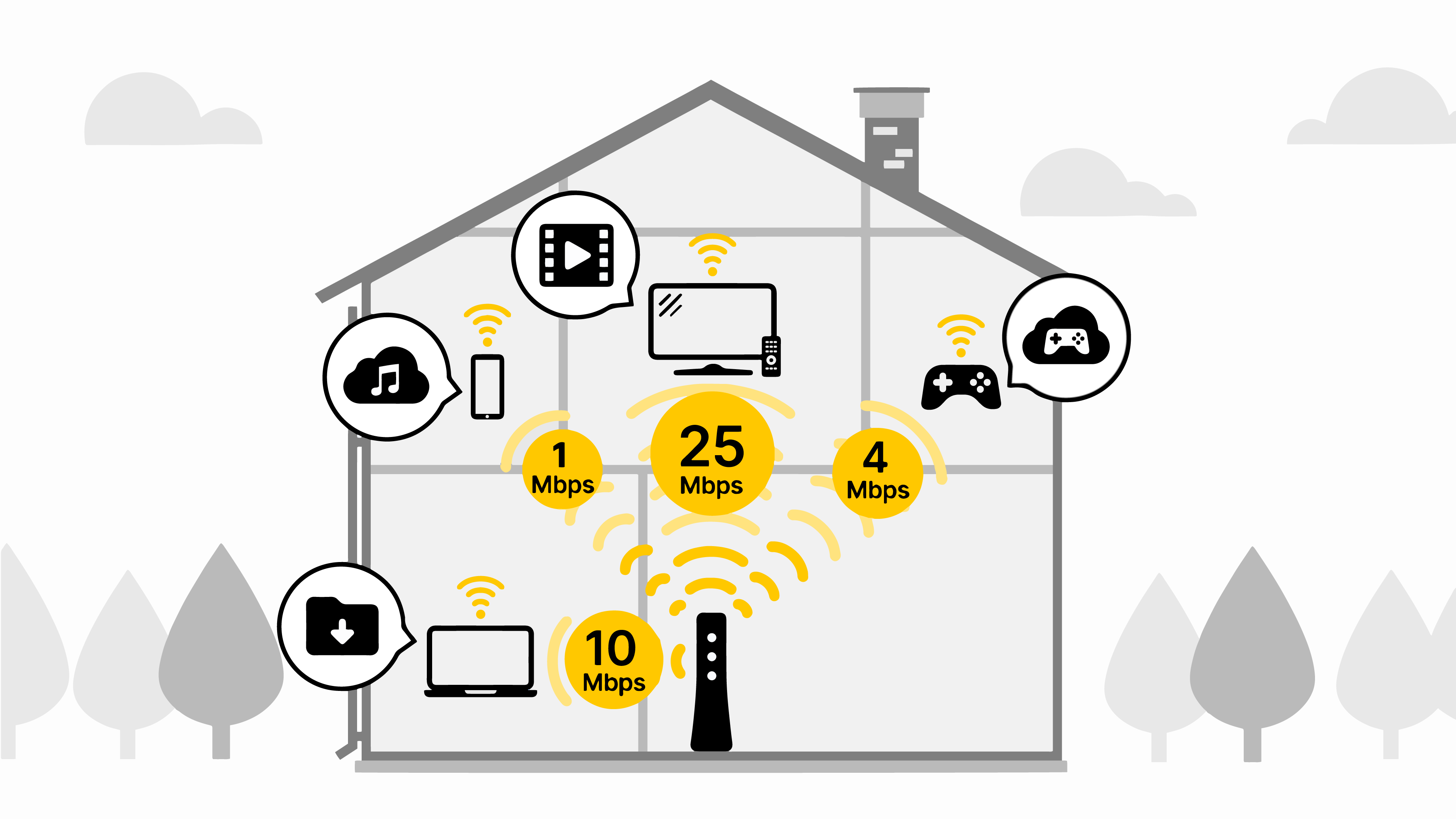We are aware that life is disrupted by slow internet. Finding the precise cause of slow internet speed is difficult because there are many potential causes. Before calling for maintenance, there are a few things you can take to get the best speed from your service.
1. Check your modem/router
2. Bandwidth and Usage
The performance of your modem and router has a significant impact on the speed of your connection.
Adjust your Router Position
How much the location of your router might affect your internet speed may surprise you. Find a location in the center of your house that is up off the floor (or in the area of your home where most internet activity takes place)

Place your router out in the open for better connection strength. Avoid closets and crowded bookshelves.

Avoid placing your router close to heavy, dense appliances and large metal or glass objects.
Physical impediments can also be a big factor in your WiFi speed being slowed down. Keep an eye out for anything that could be in the way between your router and the devices you have connected:
- Brick or concrete walls or floors
- Thick, heavy doors or windows
- Large containers of water (such as fish tanks)
- Large metal appliances (especially refrigerators)
Make every effort to move the router or any other objects that might be in the way of the connection between your router and your devices.

Distance, as well as obstructions like walls and floors, can weaken your WiFi signal strength.
Reboot your Router #
After operating for some time, routers might become sluggish. Restarting your router usually solves connectivity issues the simplest way possible. It’s now simpler than ever to set up a daily or weekly reboot to keep things operating smoothly if you discover that you need to restart regularly.
2. How many devices are using up your bandwidth? #
To begin, familiarize yourself with WiFi and internet speeds and how they affect all of the linked gadgets in your home. It’s possible that more bandwidth is utilized overall by all of your devices than you realize. And the less speed you perceive on any one device, the more bandwidth is being used.
- Smartphones, computers and tablets
- Web-enabled cameras or smart home security systems
- DVRs, smart TVs, and video streaming devices
- Additional routers, VoIP phones, wireless printers
- Voice assistants and smart speakers (like Alexa and Google Home)

Different online activities use up your available bandwidth. The more devices you have active at the same time, the more you may see slower speeds.
Many of these devices are always on and can be performing backups or upgrades in the background, which can significantly reduce internet speeds. Even your download bandwidth may be reduced by the upload bandwidth you are using. Turn off or disconnect any unused devices as much as you can. For the ones you are utilizing, this could free up more speed. To make sure backups aren’t scheduled during your personal use peak times, you might also want to check your device’s settings.
The point is that needs differ greatly. A 5 Mbps connection might be sufficient for a single person living alone, while a large home with several users would likely require at least 20 Mbps. Set reasonable expectations; you might not be able to have three family members videoconferencing, streaming TV, and playing online games at the same time, depending on your plan speed. Check your plan if any of those three activities need significant upload as well as download speeds.
Special Notes Related to Speed #
Peak hours: When the majority of households are online, internet traffic slows down across all networks. This is usually from about 7 p.m. to 11 p.m. You may notice that your internet is slower at these times.
Consider the role of various web hosts: Content providers and apps send out huge volumes of high-bandwidth video content worldwide. If a video streaming provider is getting more demand than their bandwidth can handle, this can cause video buffering — meaning it lags or sticks while loading.




